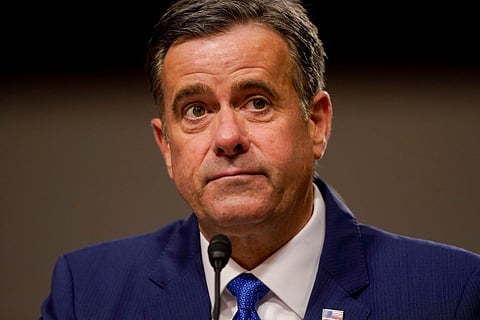ByNisha Zahid
January 24, 2025

Archaeologists work at the oldest Neolithic settlement in France. Credit: Inrap
Archaeologists have uncovered one of the oldest known Neolithic settlements in France, a rare glimpse into the early days of European farming communities. The discovery in Cavalaire-sur-Mer on the French Riviera marks a significant milestone in the study of ancient human history.
The site is part of an excavation covering 4,200 square meters, initiated as part of a city center redevelopment project. Archaeologists expect to complete their work by the end of January, 2025.
Officials have described the find as a rare and important discovery, with the settlement being only the second of its kind identified in France. The first such site is Peiro Signado, located in the Languedoc region.
A turning point in human history
The Neolithic period along the Mediterranean coast represents a crucial moment in human development. This era transitioned from nomadic lifestyles to settled farming and livestock raising. Known as the Cardial period, it is characterized by the rapid spread of early agricultural practices across the region.
Originating in Greece around 6000 BCE, the Cardial culture expanded westward, reaching southern Italy, including Sicily, Apulia, and Calabria. By 5800 BCE, it had spread further to southern France, including the French Riviera and Languedoc.

Archaeologists have uncovered one of the oldest known Neolithic settlements in France, a rare glimpse into the early days of European farming communities. The discovery in Cavalaire-sur-Mer on the French Riviera marks a significant milestone in the study of ancient human history.
The site is part of an excavation covering 4,200 square meters, initiated as part of a city center redevelopment project. Archaeologists expect to complete their work by the end of January, 2025.
Officials have described the find as a rare and important discovery, with the settlement being only the second of its kind identified in France. The first such site is Peiro Signado, located in the Languedoc region.
A turning point in human history
The Neolithic period along the Mediterranean coast represents a crucial moment in human development. This era transitioned from nomadic lifestyles to settled farming and livestock raising. Known as the Cardial period, it is characterized by the rapid spread of early agricultural practices across the region.
Originating in Greece around 6000 BCE, the Cardial culture expanded westward, reaching southern Italy, including Sicily, Apulia, and Calabria. By 5800 BCE, it had spread further to southern France, including the French Riviera and Languedoc.

Decorated ceramic shard from the Early Cardial period. Credit: Institut national de recherches archéologiques préventives (Inrap)
The term “Cardial” refers to a distinctive pottery style, decorated with patterns made using jagged shells from the Cardium genus. This pottery is a defining feature of the early Neolithic communities, which left behind scattered traces of their homes and tools across Europe.
The term “Cardial” refers to a distinctive pottery style, decorated with patterns made using jagged shells from the Cardium genus. This pottery is a defining feature of the early Neolithic communities, which left behind scattered traces of their homes and tools across Europe.
Cavalaire’s unique discovery
At Cavalaire, archaeologists found a structure buried beneath four meters of sediment in a coastal valley. The building dates to the Early Cardial period, confirmed by fragments of decorated pottery and its position 1.30 meters below Middle Neolithic layers from around 4800 BCE.
The structure measures approximately 7 by 5 meters and features two parallel stone walls and a small apse, though it has suffered damage over time.

Archaeologist examines excavation records at the Cavalaire-sur-Mer site. Credit: Inrap
The walls were reinforced with a mix of raw earth and gravel, a construction technique that added strength and durability. This design closely resembles similar structures found in central Italy, supporting theories of cultural diffusion from the east.
The excavation also revealed isolated hearths and a cluster of fire-related features in a 4-square-meter area. Postholes surrounding the features suggest a range of organized activities at the site, providing valuable insight into the daily lives of its inhabitants.
Challenges in studying early settlements
In France, most early Neolithic remains are found in caves and rock shelters. Open-air settlements, like Cavalaire, are rare and often poorly preserved, making it difficult to fully understand construction methods and architectural designs.
Despite these challenges, discoveries like Cavalaire are transforming the archaeological landscape. They hint at the potential for more ancient settlements hidden beneath layers of sediment along rivers and Mediterranean coasts, waiting to reveal the story of Europe’s first farmers.
The walls were reinforced with a mix of raw earth and gravel, a construction technique that added strength and durability. This design closely resembles similar structures found in central Italy, supporting theories of cultural diffusion from the east.
The excavation also revealed isolated hearths and a cluster of fire-related features in a 4-square-meter area. Postholes surrounding the features suggest a range of organized activities at the site, providing valuable insight into the daily lives of its inhabitants.
Challenges in studying early settlements
In France, most early Neolithic remains are found in caves and rock shelters. Open-air settlements, like Cavalaire, are rare and often poorly preserved, making it difficult to fully understand construction methods and architectural designs.
Despite these challenges, discoveries like Cavalaire are transforming the archaeological landscape. They hint at the potential for more ancient settlements hidden beneath layers of sediment along rivers and Mediterranean coasts, waiting to reveal the story of Europe’s first farmers.




















